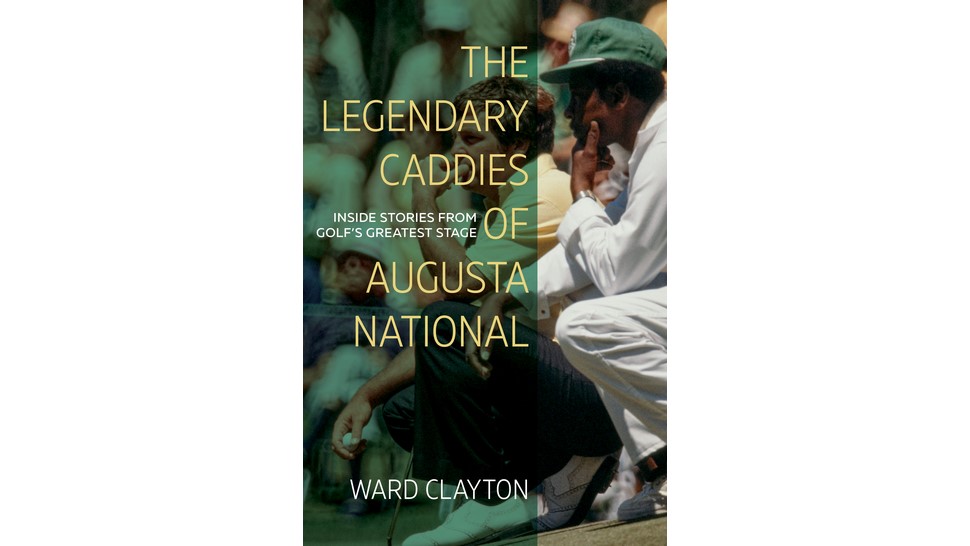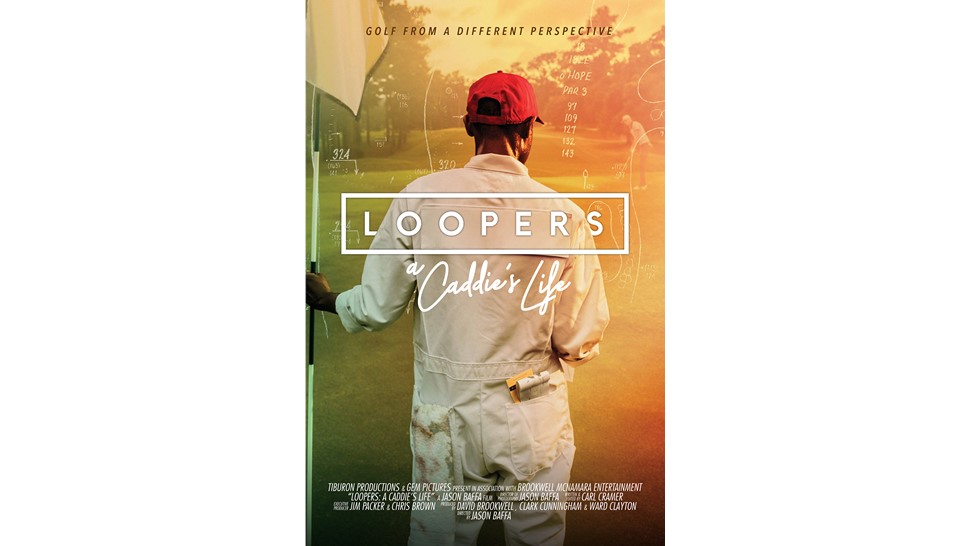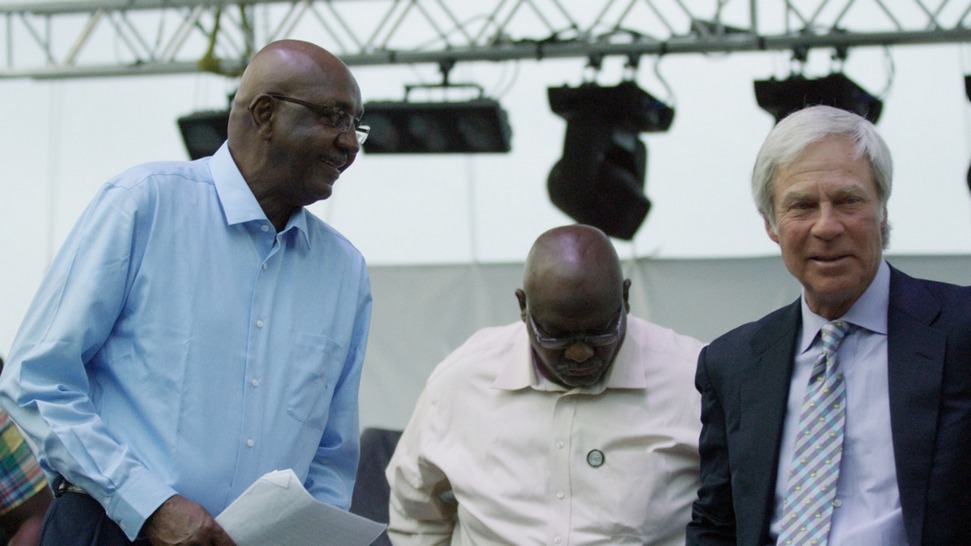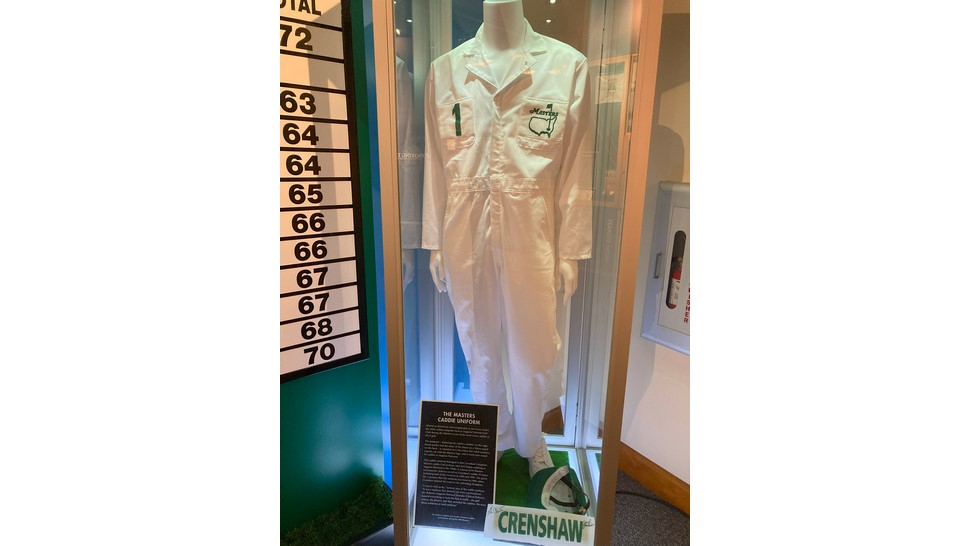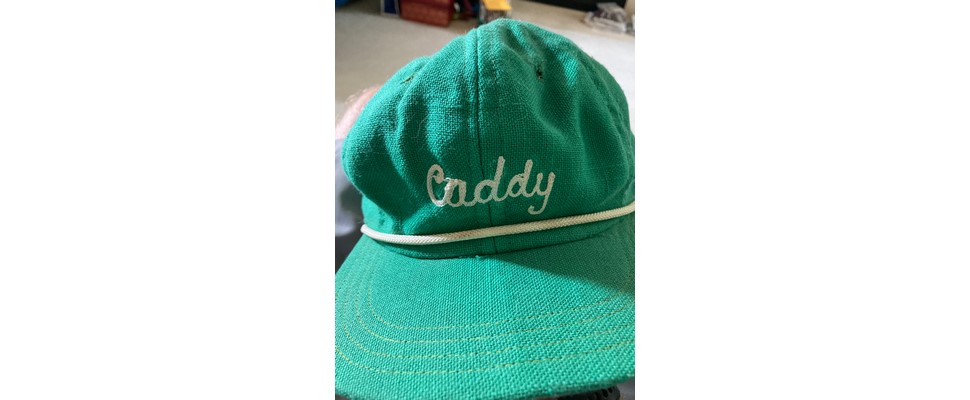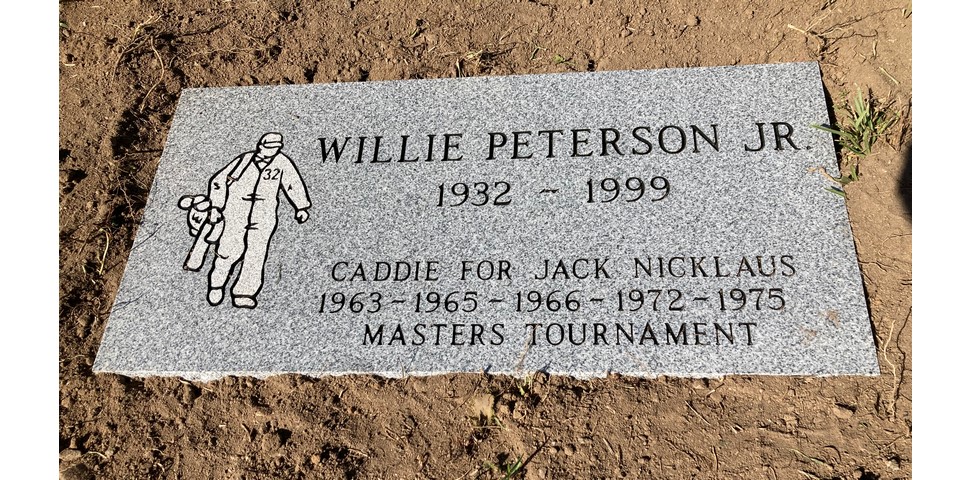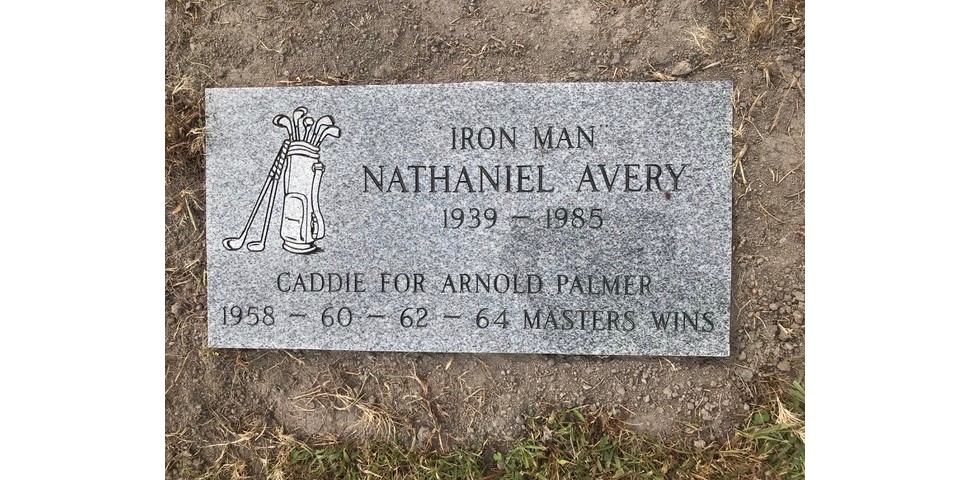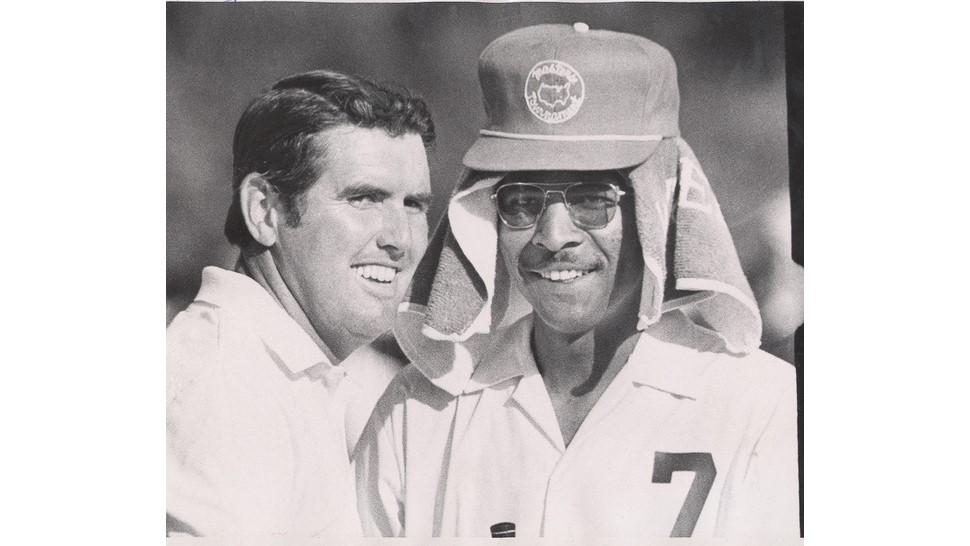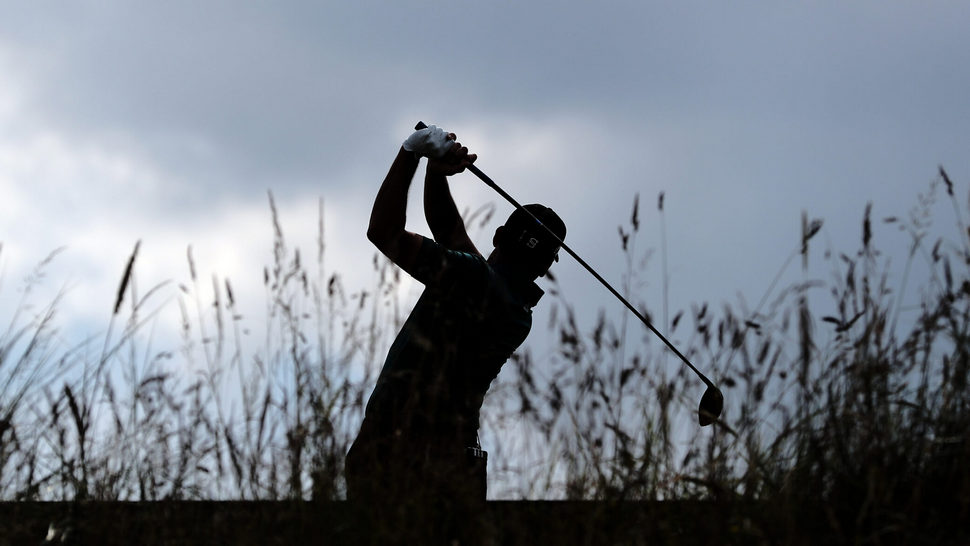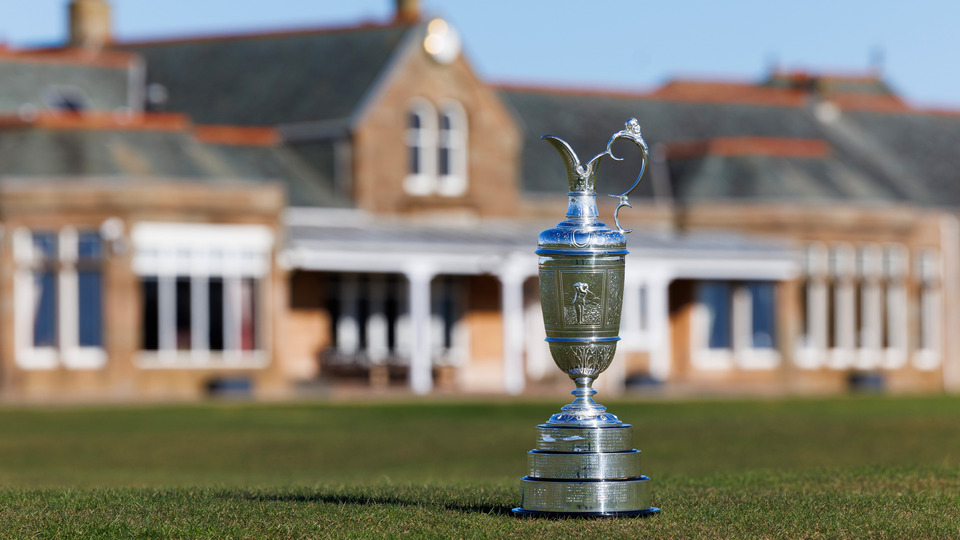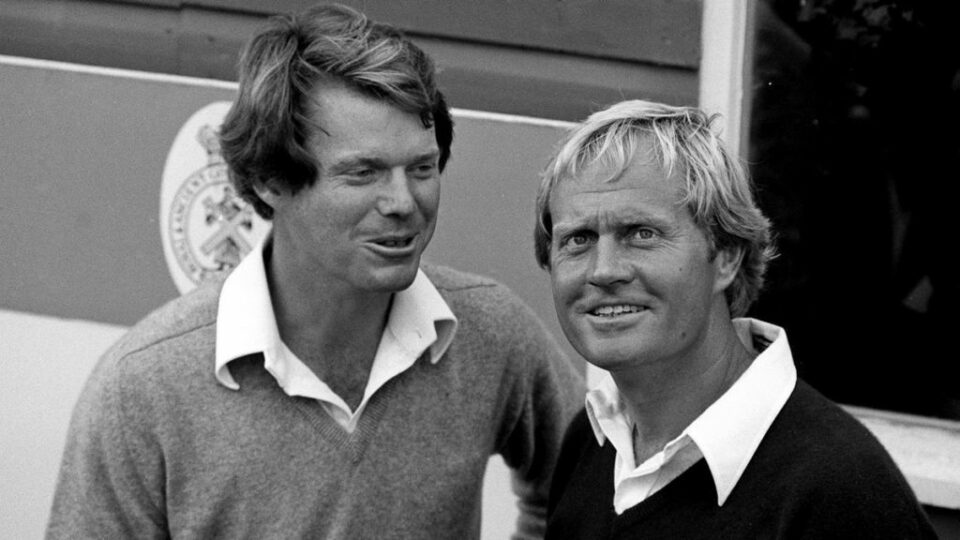Background
Ward Clayton is an accomplished and respected Communications Professional, author and editor with 20-plus years’ experience.
He is the owner of Clayton Communications and is involved annually with coverage of the Masters Tournament. Clayton is a Producer for the 2019 documentary, Loopers: The Caddie’s Long Walk, and the author of Men on the Bag: The Caddies of Augusta National, the 2004 book that gave a first-ever glimpse at the life and impact of the famed caddies at the world’s most famous golf course, home of the Masters, and the book due this spring, The Legendary Caddies of Augusta National. He is formerly a sports writer with the Durham Morning Herald, the sports editor of The Augusta Chronicle and Director of Editorial Services for the PGA Tour.
The Clayton Story
The Masters Tournament is more than golf. It's a walk in the most beautiful park you've ever seen. It's comfort food at an extraordinarily reasonable rate. It's free parking. It's spring.
There are no mobile devices, so you're actually encouraged to speak with strangers soon to be friends. And yes, the golf tournament has more cool vibes and prestige than any sporting event.
The Masters holds a special place here in that lifelong friend David Whitfield, an attendee for more than 50 years, introduced the place to me 40 years ago via the devotion of his father, Buddy, an attendee for 56 years.
Top, as we called him, went for years without tickets but convinced those who had them to let him borrow some for the week, often with a fresh country ham to exchange or a wallet and credit card to secure his legitimacy. Top's love of the Masters spread not only to me but to many others who were also mesmerized.
I have covered and attended the Masters since Bernhard Langer wore his all-red outfit to win in 1985. The lure of the story of the all-Black caddie corps at Augusta has been something that deserves to be told forever. Their legacy and the tournament's responsibility for setting the bar high for golf civility remain as key points for my interest in that first full week in April in Augusta, Georgia.
***
You served as sports editor for The Augusta Chronicle for a number of years. Can you remember the first time on property at Augusta National and what the impressions were?
When I was a sportswriter with the Durham (N.C.) Morning Herald, I first covered the Masters in 1985. This year will mark 40 consecutive years at the event. The first thing I remember is walking onto the grass from the right of the first fairway. The grass seemed so perfect that I swear it was fake.
But then I took off my sunglasses to reveal it was such finely manicured grass. What a first jaw-dropping first impression.
What was the genesis for the book?
When I was the sports editor of The Augusta Chronicle from 1991-2000, we researched and wrote all types of historic pieces on the Masters. Throughout all that work I continually heard about and read about the caddies at Augusta, but in an incomplete form - just nicknames often and very little background on who these celebrated caddies were.
There was little interest from the media, because they were caddies and all-Black. I felt like their stories should be told in full. That occurred in 2004 with Men on the Bag: The Caddies of Augusta National, the 2019 documentary Loopers: The Caddie's Long Walk and continues with this more in-depth book view. These caddies shouldn't be forgotten.
Augusta National mandated club caddies for The Masters through the 1982 event. What was the tipping point in the club acquiescing on that issue and do you view that as a positive / negative development?
The opening of the caddie ranks in 1983 was inevitable as caddying had become a more professional occupation on all the professional tours and the depth of Augusta National's caddie corps wasn't as great as necessary. Yes, there was confusion in 1982 when many of the caddies missed the resumption of play on the second day after a rainy first round, and there was no excuse for that.
But this would have happened eventually. I just wish there would have been a transition from the Augusta caddie corps to an open situation, not so abrupt of an ending, maybe a program where amateurs and first-timers have to seek counsel from the Augusta National caddies before playing Augusta National, similar to what the women currently experience.
Are Augusta National caddies mandated for the Women's Amateur held the week prior to The Masters?
No.
Participants play off site for the first two rounds, at Champions Retreat, and can provide their own caddies. All players have a chance to play a practice round at Augusta National on Friday and are "encouraged" to use an Augusta National caddie on that day to familiarize themselves with the course.
Many of the 30 players who make the cut choose to take advantage of the local knowledge and either choose an Augusta National caddie prior to the tournament or switch before the final round on Saturday. The first two winners in 2019 and 2021 had Augusta National caddies.
What's the minimum and maximum age for caddies at Augusta National?
There has never been an age limitation, just a guideline on capabilities. Carl Jackson, Ben Crenshaw's longtime caddie, began caddying at Augusta National at age 12. He still worked the Par-3 Contest in 2023 for Crenshaw at age 75.
There's probably a minimum age now as CaddieMaster Enterprises runs the caddie program. As long as they're capable caddies - both mentally and physically to tackle those huge hills at Augusta - it's a go.
Augusta National caddies are renowned for green reading skills. Has the insertion of putting green maps changed that calculus for players who now bring their own caddies to The Masters?
The Masters doesn't allow green-reading books but does provide extensive yardage books. Local knowledge still prevails at Augusta though as players and caddies try to understand "the pull," the phenomenon where every putt seemingly breaks to the area behind the 11th green at Rae's Creek, the lowest point on the property.
There's a current caddie there, Steve Kling, who has befriended some of the Masters participants and their caddies. He annually helps Dustin Johnson and his brother-caddie Austin in the weeks leading into the tournament to denote course changes.
Ted Scott, the former caddie for Bubba Watson and current caddie for Scottie Scheffler, also stays with Kling during Masters week. Understanding Augusta's greens is the ultimate goal that could take years to grasp.
How much was an Augusta caddie generally paid when the golfer he was carrying for won the green jacket?
The caddie payment scale of 10-7-5 still generally applies. That would be 10 percent for a win, 7 percent for a top-10 finish and 5 percent for anything else making the cut. A weekly fee may also be in place.
Do the math on Jon Rahm's 2023 victory where he earned $3.24 million and caddie Adam Hayes received at least $324,000. That pay may vary upward depending upon the relationship between the player and caddie.
During the time Augusta caddies were mandated for usage in The Masters was there ever a white person who caddied in the tournament and if not was such an action deliberate on the club's part?
The Augusta National caddie corps was all-Black, with very few exceptions prior to 1983. That wasn't a racially determined setup but a tradition developed from caddies who grew up in the adjacent Sand Hills neighborhood and built the credibility of their caddying skills, led and taught by patriarch Willie "Pappy" Stokes, and it drew friends and those who learned alongside and after them.
The first white caddie in 1983 was Jack Tosone, who looped for low amateur Jim Hallet, who was his college golf teammate in the Northeast United States.
Do you ever see a day when the white jumpsuits worn by caddies at Augusta National will be phased out?
No. That's a great tradition there, like the tuxedos of caddie uniforms. "It was a uniform to show that you were professional," said Carl Jackson. The jumpsuits have become as much a tradition of the tournament as azaleas, Amen Corner or Magnolia Lane.
At the January PGA Merchandise Show in Orlando, Florida, one company hired 20-some young staffers clad in caddie suits similar to Augusta to walk around and attract customers to their booth. It was a brilliant marketing idea.
Generally speaking – how much does an Augusta National caddie get paid for 18 holes when with a member and guests?
Approximately $100 but that's just an estimated fee since Augusta National doesn't divulge its rates. However, that doesn't include tips which can be much more and are based on a job well done, familiarity with the caddie and the funds available by the player or member.
How much time was spent doing the research for the book and how many Augusta caddies did you actually interview?
The first book took four years to research, sort of like going through your family tree. That was necessary to find caddie survivors, family members or gravesites.
Caddies are a tremendous resource for what's happening on the golf course since they're at the elbow of the player but you also have to sift through some of the stories to make sure they're true.
As a conservative estimate, I would say I spoke with more than 30 caddies with Augusta National ties, but that doesn't include oodles of family, friends and players.

Related: Augusta's ultimate hideaway? Head to the Crow's Nest!
Was there a specific quote from an Augusta National caddie that still resonates with you?
"When I first started caddying, we didn't use yardages, we used our head and our eyes. It was an art back in those days. When you caddied for a new player, you learned how far he could hit particular clubs. He would hit a 7-iron and it would go 150 to 155 yards. I would ask is that the best you can do with that?
We called it judging distance. There was a lot of memory involved. I had been to spots thousands of times and knew them." - Jariah Beard, caddie for Fuzzy Zoeller in 1979 victory.
How many times have you played Augusta National and was there any specific interaction you had with your caddie that made the moment extra special?
I have played Augusta National 10 times, all due to the club allowing media to step foot on the course. But the first time, the day after Jack Nicklaus won in 1986, was the most special. A young Augusta National caddie, David Chestnut, was with me that day.
On the fifth green I had a 25-foot birdie putt that I thought would break left to right. He corrected me to putt 10 feet right of the hole with my back nearly facing the target. I two-putted. Otherwise, we talked about everything but golf from shot to shot. It was delightful.
If Bob Jones were alive today - what do you think would be his thoughts on how the club and Masters have evolved?
He would be pleased about the stature of the tournament and how it has become a fixture in the entire sporting world not just golf.
Many, many sports and business entities try to emulate Augusta National and the Masters.
What's the biggest thing you learned between writings of this book over a 20-year period?
Imagine the trying time for an all-Black caddie corps in working at both a service job and in circumstances that were racially difficult. These men not only had to learn their art but also had quite the time just getting to work.
There are historic occasions where young men, mostly caddies and kitchen staff, were asked to fight blind folded off site in front of wagering members in the 1930s, a downtown Augusta race riot in the early 1970s where two caddies were two of six shot and killed and the Avery family, kin to Iron Man Avery, Arnold Palmer's caddie, was subjected to a shooting in the late 1970s on the course and they filed suit against the club.
That doesn't even include barriers to getting the proper education and healthcare because of the challenges of the day from the 1930s on.
Do you have a favorite caddie story or situation?
In 1971, Charlie Coody came to the Masters as a journeyman player. He was lucky to get his caddie from two years before, Walter "Cricket" Pritchett, who had the long, slim build and long arms similar to a cricket. On Saturday afternoon, Coody held the lead but Jack Nicklaus and Johnny Miller were in pursuit. In the eighth fairway, Coody was eyeballing his second shot to the par 5 when Cricket asked what time the CBS broadcast began that day. Coody asked why he needed to know.
"Well, you know I told my boss in Atlanta where I drive a bus that I was going to visit my sick grandmother this week," Cricket answered. "And I didn't think you were going to play this well."
Three holes later, Cricket pulled the green and white golf towel off Coody's bag, removed his cap and draped the towel over his head to hide from the cameras and his boss. Every step of the back nine, on Saturday and Sunday, Cricket wore the towel, Coody laughed and didn't have as much time to worry about Nicklaus and Miller. Coody won by two strokes. When Cricket returned to work on Monday, his boss noted it looked like Cricket had experienced a good week in Augusta.
***
For more info on how to order:

